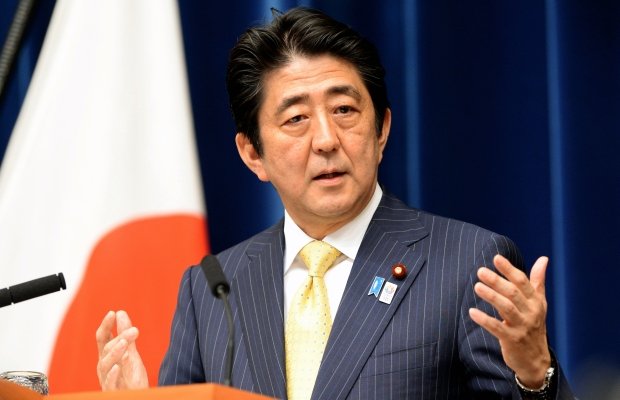Shinzo Abe’s big trade puzzle

Despite massive easing by the Bank of Japan over the last year, figures released overnight show that the country’s trade deficit is still growing at around the same pace it did before the enormous expansion of the monetary base.
The country’s merchandise trade deficit was some ¥1,302.1bn (£7.6bn) in December, twice as wide as it was in the same month of 2012. So far, Abenomics has rejected the expectation that it would address the deterioration in the country’s balance of trade.

The Yen has weakened by more than 25 per cent against the dollar and by almost 40 per cent against the euro since November 2012, just before Prime Minister Shinzo Abe’s programme of monetary easing began. Conventional wisdom holds that a weaker currency should benefit that state’s exporters: so why is the trade deficit still growing?
Maybe it isn’t meant to shrink at all
Danske Bank’s Lars Christensen and David Beckworth of Texas State University say that boosting export competitiveness just isn’t the point of Abenomics, which should be to boost domestic demand.
Christensen’ projection, made about eight months ago, had held up fairly well:
When the Bank of Japan is easing monetary policy it is likely to have a much bigger positive impact on domestic demand than on Japanese exports. In fact I would not be surprised if the Japanese trade balance will worsen as a consequence of Kuroda’s heroic efforts to get Japan out of the deflationary trap.
It’s going to shrink, hold your horses
Societe Generale’s chief Asia-Pacific economist Klaus Baader says that in fact, Japanese exporters have benefitted, with a nine per cent boost in 2013, about five or six times as fast as world trade. However, imports have grown even more rapidly, widening the deficit.
Baader holds that a the strengthening demand in the US and EU, which buy up nearly a third of Japan’s exports, combined with a contraction in domestic demand from April’s planned sales tax hike and a softness in commodity prices will cause exports to grow ahead of imports in 2014.
There is a benefit, but not for Japan
Research by the Asia Development Bank released late last year suggests that the effect on exports is extremely limited, and that European goods are the most exposed to increased competition. According to the report, only extremely similar goods are likely to be affected.
The recent depreciation of the yen should not be of particular concern to the economies in the region. Of greater importance for the rest of Asia will be Japan’s success or failure to revitalize its economy, in the context of which the yen’s depreciation ought to be considered a temporary symptom, not a cure.
Bank of America Merryl Lynch analysts add that Asian countries that are closely integrated into Japan’s supply chain might actually be the major benefactors here, piggybacking the effect of a weaker Yen.
All else equal, we see Asian countries as major beneficiaries of yen depreciation. They don’t really compete intensively with Japan, but do import a lot from Japan – so a weaker yen is better… Asian countries like Korea, China, Indonesia, Malaysia, HK and Singapore are also at the beneficial end of yen depreciation, contrary to popular wisdom.